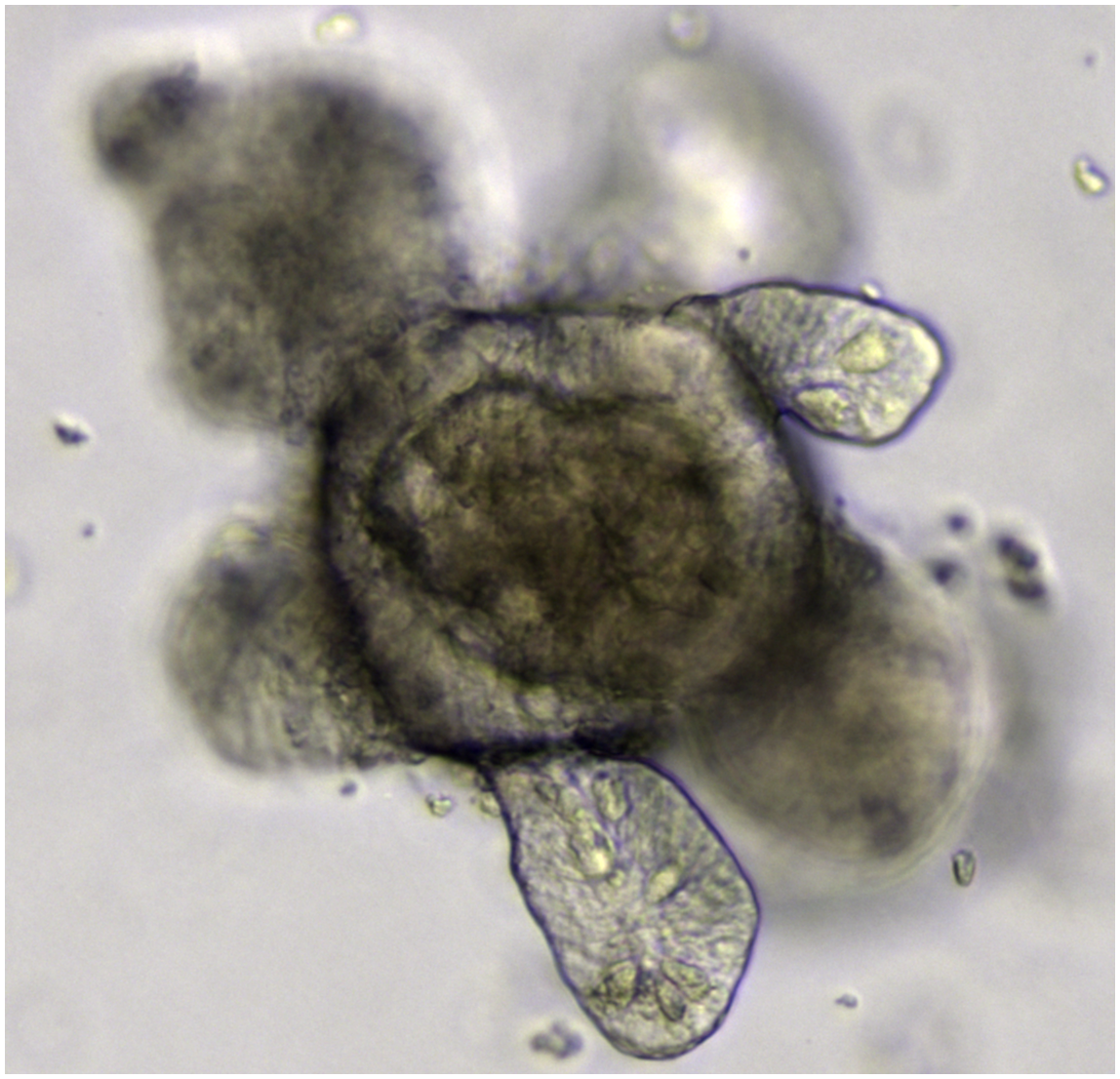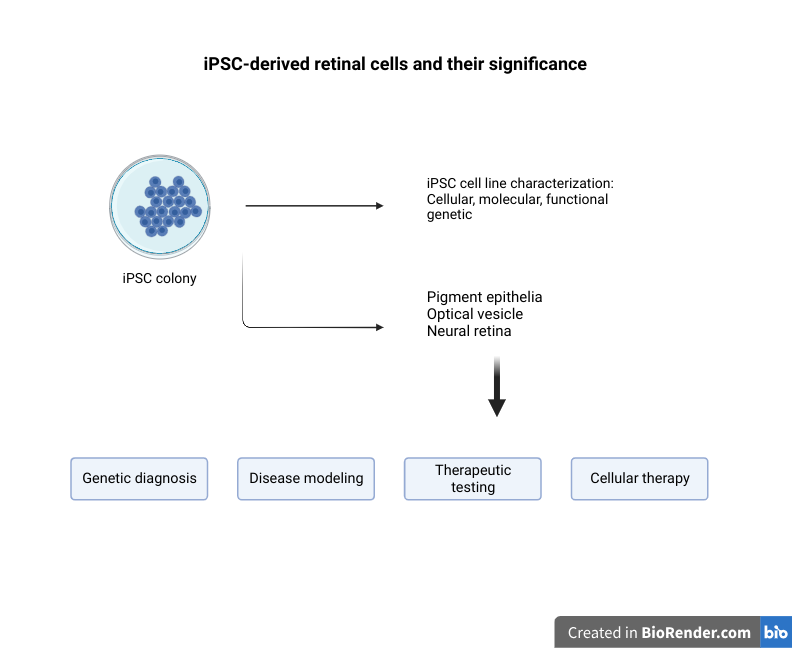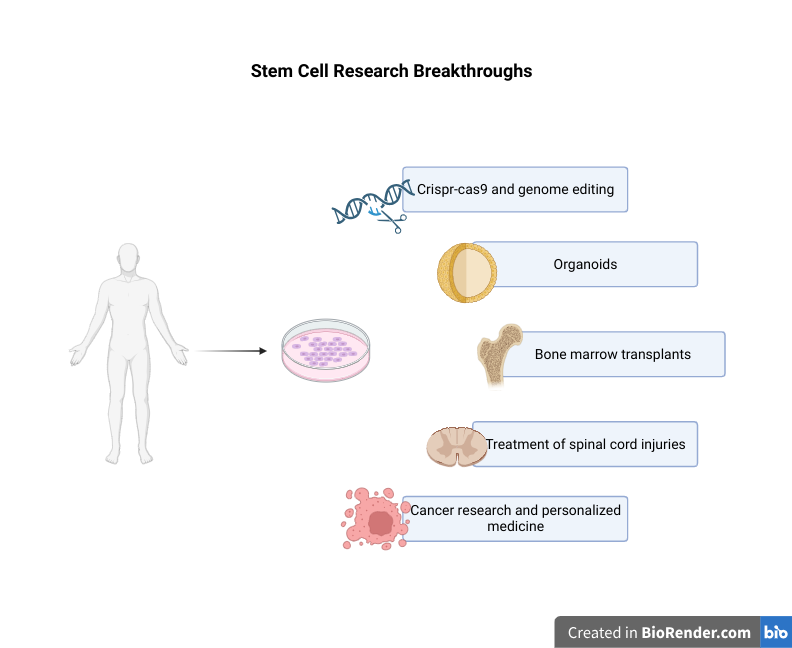
Combining organoids with artificial intelligence: accelerating discoveries
The convergence of two cutting-edge fields, organoid technology, and artificial intelligence (AI), has ignited a new era of scientific exploration with the potential to revolutionize biomedical research and drug discovery. The article provides a summary of how, by synergizing the intricate biological models of organoids with the analytical prowess of AI, researchers are poised to accelerate the pace of discoveries and uncover insights that were once beyond reach (1,2,3,4).
Enhancing precision and personalization
AI-driven algorithms have the capacity to analyze complex data sets generated from organoid experiments with remarkable speed and precision. This enables researchers to identify subtle patterns, interactions, and correlations that may not be readily apparent to the human eye. In turn, these insights can facilitate personalized medicine approaches, tailoring treatments to an individual’s unique genetic and cellular characteristics.
Drug discovery and target identification
One of the most promising applications of combining organoids with AI lies in drug discovery. Traditional drug development processes are costly and time-consuming, often yielding disappointing results in later clinical stages. Organoids, as representative models of human organs, offer a more accurate platform for testing drug candidates. AI algorithms can rapidly analyze how different compounds affect organoid behavior, predicting potential drug responses and identifying promising candidates for further testing.
Unraveling complex biological mechanisms
Organoids mimic the intricate cellular interactions and structures found in human organs, making them valuable tools for deciphering complex biological mechanisms underlying health and disease. AI algorithms can dissect these intricate networks, uncovering hidden connections and pathways that contribute to various physiological and pathological processes.
High-throughput screening and data analysis
AI can expedite the analysis of massive data sets generated from high-throughput screenings of organoids. These screenings can encompass a wide range of experimental conditions, accelerating the identification of novel therapeutic targets, biomarkers, and pathways.
Ethical considerations and challenges
While the integration of AI and organoids presents unprecedented opportunities, it also raises ethical and technical challenges. Issues such as data privacy, ownership, bias in AI algorithms, and standardization of organoid protocols require careful consideration.
The future holds the tantalizing potential for AI-assisted organoid research to unravel the mysteries of human biology and pave the way for transformative advancements in healthcare.
References
1. Bose S, Clevers H, Shen X. Promises and Challenges of Organoid-Guided Precision Medicine. Med. 2021 Sep 10;2(9):1011-1026. doi: 10.1016/j.medj.2021.08.005. PMID: 34617071; PMCID: PMC8492003.
2. Smirnova L, Morales Pantoja IE, Hartung T. Organoid intelligence (OI) – The ultimate functionality of a brain microphysiological system. ALTEX. 2023;40(2):191-203. doi: 10.14573/altex.2303261. PMID: 37009773.
3. Cai H, Ao Z, Tian C, Wu Z, Liu H, Tchieu J, Gu M, Mackie K, Guo F. Brain Organoid Computing for Artificial Intelligence. bioRxiv [Preprint]. 2023 Mar 1:2023.02.28.530502. doi: 10.1101/2023.02.28.530502. PMID: 36909615; PMCID: PMC10002682.
4. Hyun I, Scharf-Deering JC, Lunshof JE. Ethical issues related to brain organoid research. Brain Res. 2020 Apr 1;1732:146653. doi: 10.1016/j.brainres.2020.146653. Epub 2020 Feb 1. PMID: 32017900; PMCID: PMC7140135



